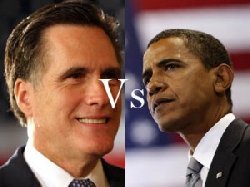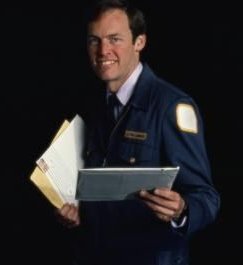- with apologies to Hans Christian Andersen.
(Click for
AUDIO VERSION)
To use this segment in a Radio broadcast or Podcast, send TIM a request.

Many years ago there was a President so exceedingly fond of hyperbole that he spent all his money on political spin. He cared nothing about preparing a balanced budget, or tending to matters of state, except to campaign for his next election. He had a catch-phrase for every hour of the day, and instead of saying, as one might, about any other ruler,
"The King is in council," here they always said,
"The President is on the campaign trail."
In the great city where he lived, life was always gay. Every day many strangers came to town, and among them one day came two swindlers. They let it be known they were spin doctors, and they said they could weave the most magnificent excuses for not properly governing the country. Not only were their techniques effective, but the excuses had a wonderful way of clouding the truth about reality. So much so, that anyone challenging the excuses would be considered unfit and unusually stupid.
"Those would be just the excuses for me," thought the President. "If I use them I would be able to discover who in my empire can separate fact from fiction and the fools who cannot. Yes, I certainly must have them work for me." He paid the two spin doctors a large sum of money to start work at once.
They set up offices and pretended to work, though there was nothing special to do as the President himself could not differentiate between fact and fiction.
"I'd like to know how those spin doctors are getting on with the excuses," the President thought, but he felt slightly uncomfortable when he remembered that those who were unfit for their position would not be able to detect the truth. It couldn't have been that he doubted himself, yet he thought he'd rather send someone else to see how things were going.
"I'll send my honest old Press Secretary," the President decided. "He'll be the best one to tell me how the excuses sound, for he's a sensible man and no one knows spin better."
So the honest old Press Secretary went to the room where the two swindlers sat working away. Both the swindlers begged him to be so kind as to come near to read the excellent excuses they had written, all of which blamed scapegoats for the country's problems. The poor old Press Secretary stared as hard as he dared but he couldn't grasp the excuses. "Heaven have mercy," he thought. "Can it be that I'm a fool? I know the President is honestly at fault, but not a soul must know. Am I unfit to be the Press Secretary? It would never do to let on that I don't know what catch phrases like 'Hope and Change', 'Pay their Fair Share' and 'Forward' truly mean."
"Don't hesitate to tell us what you think of the excuses," said one of the spin doctors.
"Oh, it's brilliant, quite enchanting." The old Press Secretary peered through his spectacles. "Such a line of BS! I'll be sure to tell the President how delighted I am with it."
"We're pleased to hear that," the spin doctors said. They proceeded to name all of the scapegoats, including Bush, the GOP, the 1%, whites, capitalism, and of course evil American business. The old Press Secretary paid the closest attention, so that he could tell it all to the President. And so he did.
The spin doctors at once asked for more money to get on with the deceptions. And it all went into their pockets.
The President presently sent another trustworthy campaign manager to see how the work progressed and how soon it would be ready. The same thing happened to him that had happened to the Press Secretary. He looked and he looked, but he couldn't tell fact from fiction.
"Aren't these good excuses?" the swindlers asked him. But the campaign manager realized the President was to blame, not the scapegoats.
"I know I'm not stupid," the man thought, "so it must be that I'm unworthy of my good office. That's strange. I mustn't let anyone find it out, though." So he praised the excuses. To the President he said, "It held me spellbound."
The President wanted to see it for himself what his two old trusted officials were excited about. Attended by a band of chosen men, he set out to see the two spin doctors. He found them writing with might and main.
"Magnificent," said the two officials already duped. "Just look, Your Majesty, what excuses!" They pointed to the papers which contained a scapegoat for each of the President's botched policies on economics, energy, immigration, health care, and foreign relations.
"What's this?" thought the President. "You mean I am innocent of any wrongdoing? This is excellent! What a charade to pull on the people. Oh! They're marvelous," he said. "It has my highest approval." Nothing could make him admit he had made a mistake.
His whole retinue stared and stared. One saw no more than another, but they all joined the President in exclaiming, "Oh! These are awesome excuses," and they advised him to tell the excuses before the country. "Magnificent! Excellent! Unsurpassed!" were bandied from mouth to mouth, and everyone did his best to seem well pleased.
Before the State of the Union address the spin doctors sat up all night prepping the teleprompters, to show how busy they were.
Then the President himself came with his noblest nobleman, the Vice President, and the spin doctors reviewed the list of excuses with him. "This is the record you should run on, your Excellency." The President gathered up the papers and turned again for one last look in the mirror. He seemed to regard his looks with the greatest interest.
So off went the President to deliver his State of the Union address. Afterwards, he left proudly in procession through the streets of the capitol. Everyone on the sidewalks and in the windows waved and said, "Oh, how fine the President looks. His speech was so meaningful. It will send the country in the proper direction."
"But you still haven't solved our problems," a little child said. "Do you think we're all fools? That was some of the worst BS I have ever heard. Although you keep blaming others, it was YOUR fiscal policies that caused our debt to skyrocket, to lower our credit ratings, to cause unemployment to stagnate above 8%, to cause us to be more dependent on foreign energy, and scare business away from our shores. How long are you going to continue to lie to the country?"
"Did you ever hear such innocent prattle?" said the child's father. And one person whispered to another what the child had said, "He hasn't solved our problems. A child says he hasn't solved our problems."
"But you haven't solved our problems!" the whole town cried out in unison.
The President shivered, for he knew they were right. But he thought, "This procession has got to go on." So he walked more proudly than ever, followed by his czars and cronies with his head held high and reading from his teleprompters that it was still all Bush's fault.
Keep the Faith!
Note: All trademarks both marked and unmarked belong to their respective companies.
Copyright © 2012 by Tim Bryce. All rights reserved.
 To observe May Day (May 1st), Sean Hannity of the Fox News Channel invited as a guest on his show Harrison Schultz of the Occupy Wall Street (OWS) movement to explain his organization's objectives and motives. According to his LinkedIn profile, the 29 year old Schultz is a General Co-Organizer of the OWS and self-described "Anarchist." Needless to say, the interview with Hannity, the polar opposite of Shultz politically, was rugged. Shultz argued, "The problem here is capitalism. That's what needs to change. That's what is failing all of these people."
To observe May Day (May 1st), Sean Hannity of the Fox News Channel invited as a guest on his show Harrison Schultz of the Occupy Wall Street (OWS) movement to explain his organization's objectives and motives. According to his LinkedIn profile, the 29 year old Schultz is a General Co-Organizer of the OWS and self-described "Anarchist." Needless to say, the interview with Hannity, the polar opposite of Shultz politically, was rugged. Shultz argued, "The problem here is capitalism. That's what needs to change. That's what is failing all of these people."
 Tim Bryce is a writer and the Managing Director of M&JB Investment Company (M&JB) of Palm Harbor, Florida and has over 30 years of experience in the management consulting field. He can be reached at timb001@phmainstreet.com
Tim Bryce is a writer and the Managing Director of M&JB Investment Company (M&JB) of Palm Harbor, Florida and has over 30 years of experience in the management consulting field. He can be reached at timb001@phmainstreet.com Many years ago there was a President so exceedingly fond of hyperbole that he spent all his money on political spin. He cared nothing about preparing a balanced budget, or tending to matters of state, except to campaign for his next election. He had a catch-phrase for every hour of the day, and instead of saying, as one might, about any other ruler, "The King is in council," here they always said, "The President is on the campaign trail."
Many years ago there was a President so exceedingly fond of hyperbole that he spent all his money on political spin. He cared nothing about preparing a balanced budget, or tending to matters of state, except to campaign for his next election. He had a catch-phrase for every hour of the day, and instead of saying, as one might, about any other ruler, "The King is in council," here they always said, "The President is on the campaign trail."
 The presidential race is now in full swing, and we didn't even have to wait for the party conventions which normally denote the start of the official race. Then again, I don't think anyone is really surprised the race would be between President Barack Obama and Governor Mitt Romney. Obama is the unchallenged incumbent, and Romney has been begging for this opportunity ever since he lost to John McCain in 2008. The differences between the two candidates are startling.
The presidential race is now in full swing, and we didn't even have to wait for the party conventions which normally denote the start of the official race. Then again, I don't think anyone is really surprised the race would be between President Barack Obama and Governor Mitt Romney. Obama is the unchallenged incumbent, and Romney has been begging for this opportunity ever since he lost to John McCain in 2008. The differences between the two candidates are startling.
 Are Information Technology Workers Blue Collar? Interesting question. I was recently asked this by some executives who were concerned with improving the productivity of their I.T. departments. I asked them to explain why they thought this way. They contended their I.T. people (e.g., analysts and programmers) exhibit a lot of blue collar characteristics, e.g., repetition in types of work performed, they do not dress or act like professionals, and regularly punch in and out of work with little interest in going above and beyond the call of duty.
Are Information Technology Workers Blue Collar? Interesting question. I was recently asked this by some executives who were concerned with improving the productivity of their I.T. departments. I asked them to explain why they thought this way. They contended their I.T. people (e.g., analysts and programmers) exhibit a lot of blue collar characteristics, e.g., repetition in types of work performed, they do not dress or act like professionals, and regularly punch in and out of work with little interest in going above and beyond the call of duty.
 Sushi has been a favorite of mine since I began visiting Japan back in the 1970's. When I first tasted it, I was somewhat surprised by the hot wasabe mustard carefully hidden between the fish and the rice cake, but as I am somewhat of an aficionado of hot and spicey food, I adapted to it quickly. For the uninitiated, sashimi is simply raw fish, but sushi consists of a small rice cake, usually the size of a pinky finger, topped with green wasabe mustard and sashimi. Sushi comes in as many varieties as there are fish in the sea, and I've tried just about everything from eels and fish heads to Dancing Shrimp. "Dancing Shrimp?" you might ask. Actually it's an interesting story.
Sushi has been a favorite of mine since I began visiting Japan back in the 1970's. When I first tasted it, I was somewhat surprised by the hot wasabe mustard carefully hidden between the fish and the rice cake, but as I am somewhat of an aficionado of hot and spicey food, I adapted to it quickly. For the uninitiated, sashimi is simply raw fish, but sushi consists of a small rice cake, usually the size of a pinky finger, topped with green wasabe mustard and sashimi. Sushi comes in as many varieties as there are fish in the sea, and I've tried just about everything from eels and fish heads to Dancing Shrimp. "Dancing Shrimp?" you might ask. Actually it's an interesting story.
 It used to be that picking a vice presidential running mate was somewhat of an inconsequential undertaking as the president basically ran everything and the vice president collected dust somewhere in Washington, DC. This all changed when Franklin Roosevelt died unexpectedly in 1945 thereby thrusting Harry Truman into the Oval Office and placing the mantle of responsibility squarely on his shoulders, including our participation in the second world war. As VP, Truman knew nothing about the atomic bomb or Roosevelt's dealings with Churchill and Stalin. Fortunately, Truman rose to the occasion and carried on admirably. However, this forced people to rethink the importance and role of the vice president. No longer was it considered inconsequential, but potentially had huge ramifications. Since then, the role of vice president has evolved and there is now a closer working relationship with the president. In fact, the selection of vice president is indicative of the presidential nominee's judgment and ability to make decisions.
It used to be that picking a vice presidential running mate was somewhat of an inconsequential undertaking as the president basically ran everything and the vice president collected dust somewhere in Washington, DC. This all changed when Franklin Roosevelt died unexpectedly in 1945 thereby thrusting Harry Truman into the Oval Office and placing the mantle of responsibility squarely on his shoulders, including our participation in the second world war. As VP, Truman knew nothing about the atomic bomb or Roosevelt's dealings with Churchill and Stalin. Fortunately, Truman rose to the occasion and carried on admirably. However, this forced people to rethink the importance and role of the vice president. No longer was it considered inconsequential, but potentially had huge ramifications. Since then, the role of vice president has evolved and there is now a closer working relationship with the president. In fact, the selection of vice president is indicative of the presidential nominee's judgment and ability to make decisions.
 A couple of years ago I created somewhat of a ruckus when I wrote an article on
A couple of years ago I created somewhat of a ruckus when I wrote an article on  The original purpose of our company was to develop and market a methodology to walk people step-by-step through the design and development of information systems, from soup-to-nuts. We implemented this as a series of manuals and forms for people to reference during the process. Actually, there were three manuals in the set which were housed in 22-ring binders: a manual to explain the methodology, another to show examples, and a third with training materials and an installation guide. This was done at a time before there were quick copy shops. Based on our artwork, a printer would produce copies of the manuals and forms on an offset press which was returned to us for collating, punching, and insertion into the binders. This was certainly not a glamorous job, but it had to be done regardless. To implement it, we setup long tables and organized the pages around them. We then began the arduous task of collating and inserting the paper by encircling those tables for hours. On a good day, we could assemble forty manuals which was considered a respectable pace. Inevitably, we began to experience the effects of monotony and boredom. You couldn't go on autopilot completely during this assembly as you didn't want to make a mistake, but it certainly wasn't complicated either. We did this for several years until we were able to automate our manuals for access via the computer. I cannot honestly say I miss those days, but I appreciate the necessity of the work.
The original purpose of our company was to develop and market a methodology to walk people step-by-step through the design and development of information systems, from soup-to-nuts. We implemented this as a series of manuals and forms for people to reference during the process. Actually, there were three manuals in the set which were housed in 22-ring binders: a manual to explain the methodology, another to show examples, and a third with training materials and an installation guide. This was done at a time before there were quick copy shops. Based on our artwork, a printer would produce copies of the manuals and forms on an offset press which was returned to us for collating, punching, and insertion into the binders. This was certainly not a glamorous job, but it had to be done regardless. To implement it, we setup long tables and organized the pages around them. We then began the arduous task of collating and inserting the paper by encircling those tables for hours. On a good day, we could assemble forty manuals which was considered a respectable pace. Inevitably, we began to experience the effects of monotony and boredom. You couldn't go on autopilot completely during this assembly as you didn't want to make a mistake, but it certainly wasn't complicated either. We did this for several years until we were able to automate our manuals for access via the computer. I cannot honestly say I miss those days, but I appreciate the necessity of the work.
 Last month I had mixed emotions as I watched the flight of the "Discovery" space shuttle orbiter on television as it was being retired to the Smithsonian Institute in Washington, D.C.; on the one hand I was proud of our achievements in space, but on the other, I was sad to realize the shuttle's mothballing represented an end of an era, that our space program for all intents and purposes has stalled and we are now dependent on others to get us into space, a service we used to perform with great regularity. This icon from our past made me think how our country has changed over the years. Whereas not too long ago America was considered the premier engine for business, the model for democracy, and a beacon for hope and freedom in the world. Now, I am not so sure.
Last month I had mixed emotions as I watched the flight of the "Discovery" space shuttle orbiter on television as it was being retired to the Smithsonian Institute in Washington, D.C.; on the one hand I was proud of our achievements in space, but on the other, I was sad to realize the shuttle's mothballing represented an end of an era, that our space program for all intents and purposes has stalled and we are now dependent on others to get us into space, a service we used to perform with great regularity. This icon from our past made me think how our country has changed over the years. Whereas not too long ago America was considered the premier engine for business, the model for democracy, and a beacon for hope and freedom in the world. Now, I am not so sure.
 Shortly after college as I was beginning my career, I happened to visit my doctor's office for a routine checkup. I took a seat in the waiting room and began to look around. There were, of course, the usual nondescript magazines and newspapers from years ago, with titles I didn't recognize, some were even printed in foreign languages. I guess today's edition of the local newspaper or the "Wall Street Journal" was out of the question. There was also a television set tuned to a channel featuring a local yokel talk show. Some of the people just stared at the screen mesmerized like zombies. I hesitated to change the channel as I had visions they would turn and attack me. Most of the patients though just sat quietly looking at the ground awaiting their turn with the doctor. Some looked a bit nervous and apprehensive about being there, kind of like prisoners on their way to the gas chamber. It was all rather depressing. Then suddenly the front door swung open and in strode the postman delivering the mail with a brisk step. "Good morning everyone," he said with a loud and cheerful voice, "How's everybody doing today? What a beautiful day isn't it?"
Shortly after college as I was beginning my career, I happened to visit my doctor's office for a routine checkup. I took a seat in the waiting room and began to look around. There were, of course, the usual nondescript magazines and newspapers from years ago, with titles I didn't recognize, some were even printed in foreign languages. I guess today's edition of the local newspaper or the "Wall Street Journal" was out of the question. There was also a television set tuned to a channel featuring a local yokel talk show. Some of the people just stared at the screen mesmerized like zombies. I hesitated to change the channel as I had visions they would turn and attack me. Most of the patients though just sat quietly looking at the ground awaiting their turn with the doctor. Some looked a bit nervous and apprehensive about being there, kind of like prisoners on their way to the gas chamber. It was all rather depressing. Then suddenly the front door swung open and in strode the postman delivering the mail with a brisk step. "Good morning everyone," he said with a loud and cheerful voice, "How's everybody doing today? What a beautiful day isn't it?"

 There is little difference between brainwashing for politics, religion, subversion, or any other purpose. The intent is to manipulate the minds of the masses through various control techniques, be they subtle or overt. Like it or not, we have all been manipulated by some form of mind control, be it in school, through advertising to form purchasing habits, to form a devotion to a religion, cult or some other order, or to form political opinions. Without some form of mind control, the masses can become easily distracted and form conflicting opinions which potentially can lead to rebellion, as vividly seen in the Middle East of 2011.
There is little difference between brainwashing for politics, religion, subversion, or any other purpose. The intent is to manipulate the minds of the masses through various control techniques, be they subtle or overt. Like it or not, we have all been manipulated by some form of mind control, be it in school, through advertising to form purchasing habits, to form a devotion to a religion, cult or some other order, or to form political opinions. Without some form of mind control, the masses can become easily distracted and form conflicting opinions which potentially can lead to rebellion, as vividly seen in the Middle East of 2011.